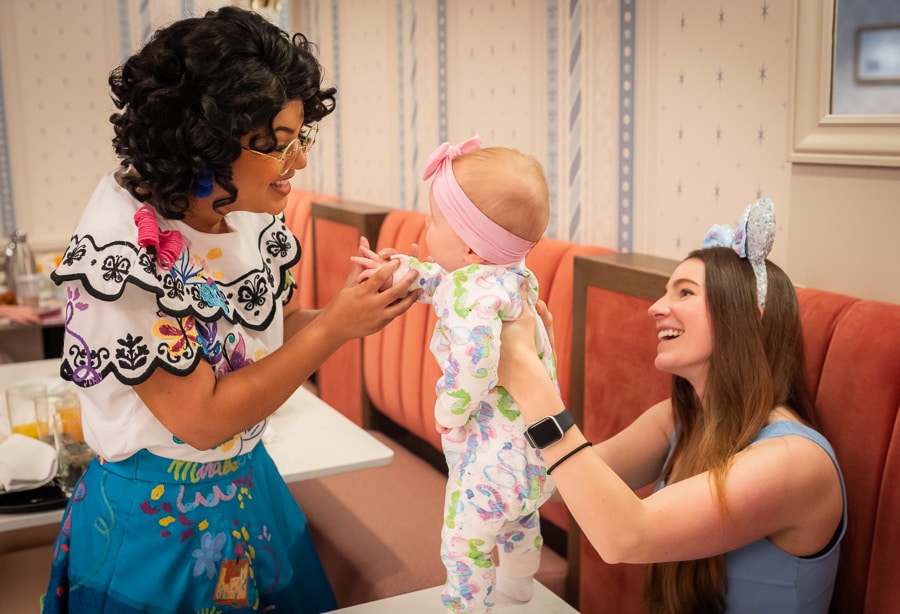
One of the biggest decisions when planning for Walt Disney World is whether to buy the Disney Dining Plan. It’s incredibly polarizing–some WDW fans love it and others hate it. This cuts through that to weigh the pros & cons and value for money to help you determine whether the Disney Dining Plan is worth it for your family. (Updated May 19, 2024.)
Let’s start with basics about the Disney Dining Plan, which is a prepaid meal plan offered at Walt Disney World so guests can budget their dining costs in advance and (potentially) save money. It provides guests with credits that can be redeemed for snacks, and counter service or table service meals. Only two tiers of the DDP are offered for 2024 and 2025: the Quick-Service Disney Dining Plan and standard Disney Dining Plan.
Additionally, if you’re already looking forward to next year, there are also already 2025 Disney Dining Plan Price Increases, albeit minor and below the rate of inflation. Menu prices will almost certainly increase by similar amounts later this year, so the value proposition of the DDP doesn’t really change in 2024 vs. 2025. If it’s worth it for you this year, it will be next–and vice-versa.
If you’re debating whether to book the Free Dining promotion, it’s important to note that this post pertains to the paid version of the DDP. While it’s true that there’s no such thing as a free lunch–and Free Dining is more like “Free” Dining (air quotes)–it’s still a different question.
We have a separate post answering Is Free Dining Worth It? Basically, that boils down to opportunity cost. Free Dining requires booking a full price vacation package and forgoing other discounts. So do you come out ahead doing that, even if you can’t take full advantage of the Disney Dining Plan? That’s the operative question, and it’s different than this one (party size and hotel tier are the major factors there).
We’ve used the Disney Dining Plan numerous times–both “free” and paid–usually multiple times per year. Our tips and opinions are based on our first-hand experience with the Dining Plan every year (minus the 3 it hasn’t been available) since 2007. Equally as important, we have not used the Disney Dining Plan many more times than we have used it.
In reading about Walt Disney World, you’ll quickly learn that there are diehard Dining Plan fans, and others who hate it with the fiery passion of one thousand suns. Both groups have their biases, and often make sweeping generalizations about the Disney Dining Plan based on how well it works–or doesn’t–for them, failing to recognize not everyone dines like they do. In reality, the DDP has pros & cons, can be great for some families and awful for others.
The Disney Dining Plan is very much not one-size-fits-all, and this post reflects that. So if you were hoping for a simple “yes” or “no” to the titular question, we’re sorry to disappoint. Whether the Disney Dining Plan is worth it depends upon your specific circumstances. (We’d estimate that the answer is “no” for around 75% of guests–but you could be among the 25% for whom it is!)


For its part, Walt Disney World has identified two main reasons to purchase the Disney Dining Plan. The first selling point is “Convenience & Flexibility.” According to the company, the Disney Dining Plan can add the convenience and flexibility of prepaid meals and snacks to your vacation—and give you peace of mind–thanks to the more than 200 locations throughout the parks, resort hotels, and Disney Springs that accept the DDP.
The second selling point according to Walt Disney World is “Value & Savings.” For the first time in several years, the company is touting the money-saving component of the Disney Dining Plan, indicating that families with little ones can save on dining–up to 20% on dining for kids ages 3 to 9. While the DDP was promoted as a money-saving vacation for the first several years after it debuted, that stopped being the case several years ago–presumably due to price increases and cutbacks.
As with so many things, pros & cons are a matter of perspective. In our view, there are actually more selling points and drawbacks than what Walt Disney World has highlighted. While we disagree with contentions of convenience and flexibility, we actually think that Walt Disney World is underselling the money-saving side of the Disney Dining Plan. However, that could be for good reason, as many guests assume it’ll save them a ton of money even without Walt Disney World advertising the DDP as such.
In any case, here are the arguments in favor of buying the Disney Dining Plan, followed by those for skipping it. More accurately, this is which types of guests and in what circumstances it makes the most sense to purchase or pass over the DDP…
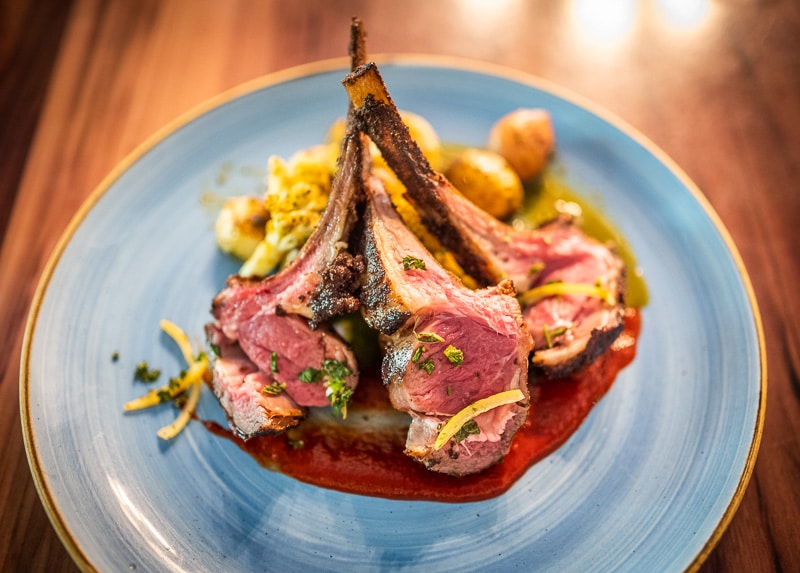

Who SHOULD Buy the Disney Dining Plan
Spreadsheet Savants – For some Walt Disney World fans, planning is half the fun. You map out your vacation plans with tactical precision, making comprehensive itineraries, using spreadsheets (ugh!), and so forth. The Disney Dining Plan adds another layer to that, and figuring out ways to leverage it is “fun.”
Although I poke fun at the spreadsheet savants out there, we are not all that different. I also like to make meticulous meal plans for Walt Disney World, and get a tremendous sense of satisfaction in outsmarting the system. I love putting together our posts for maximizing value on the Disney Dining Plan, and we use those resources ourselves to squeeze as much bang for our buck as possible out of the DDP.
A lot of Walt Disney World fans do the same, and this is both a fun and rewarding experience for them. With that said, this should be one of those things that immediately clicks as being “for you” if you’re a first timer. If you just read the preceding paragraphs with puzzlement, it probably is not.
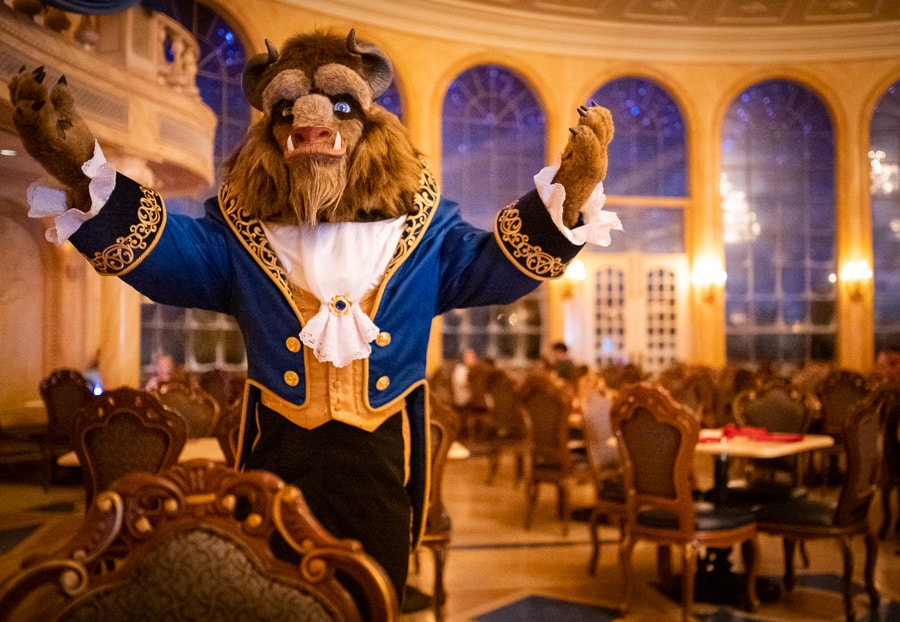

The Careful and/or Carefree – Many fans argue that the Disney Dining Plan is about convenience. We beg to differ. This is one of dozens of articles about using the Disney Dining Plan on this blog. We have exactly zero articles about the pros & cons of paying cash as you go. In terms of what’s simpler, paying out of pocket is far more straightforward and intuitive. It’s what you do at every real world restaurant–no explanation necessary.
What people presumably mean when they use words like “convenient” is that the Disney Dining Plan is predictable. Since it’s prepaid, you know the costs of your meals in advance of your trip and are not caught by surprise at just how expensive everything is upon arrival at Walt Disney World. For many planners, this is important.
Being careful with their spending ahead of time also allows many planners to enjoy a more carefree vacation. While we contest that the DDP is convenient or particularly helpful with budgeting, DDP helping the cautious be more carefree is undeniable. Many people on vacation get sticker shock, and are unable to fully enjoy themselves or order freely after seeing menu prices. The Disney Dining Plan allows these worry-warts to not obsess over prices, and instead relax and order what they want. (As someone who is frugal-to-a-fault, I very much empathize with this perspective!)


Herds of Kids – Walt Disney World significantly increased adult prices for the standard Disney Dining Plan, while decreasing them for children. The end result is that the value proposition is better for parties that have fewer adults and more children. Of course, that assumes your kids would order and eat as much food as is offered by the DDP, and wouldn’t split meals or eat less frequently. Otherwise, the better value is illusory.
Regardless, those with more children (ages 3-9) than adults in their party are objectively more likely to come out ahead. Clearly, Walt Disney World is demonstrating bias against the dreaded Childless Millennial demo (or Baby-less Boomers, for that matter!) and is now catering to adult-free packs of stray children. It’s almost like they’ve never read Lord of the Flies.
Joking aside, single parents or families of 3+ children will usually come out ahead with the Disney Dining Plan going forward. Even as the “losers” in this change, we don’t really mind. Fewer families with children had been purchasing the DDP previously (as compared to couples), and families of 5-6 are notoriously “losers” when it comes to accommodations at Walt Disney World. It’s time for them to rack up a rare W.


Character Lovers – Several character dining experiences make our list of the Top 10 Disney Dining Plan Table Service Credit Values. If that were expanded to a top 20 list, many more character meals would make the cut. As a category, this is the most common type of restaurant for good-to-great value on the Disney Dining Plan. It’s not true that every single character dining experience offers above-average value (a few breakfasts do not and none of the 2-credit meals do), but it’s a pretty solid rule of thumb.
It has thus always been the case that the Disney Dining Plan was a good option for those wanting to do character meals. This is truer than ever for families with children due to the aforementioned price gap between adult and kids pricing of the DDP.
Unlike other restaurants, where kids might simply order and eat less when paying out of pocket, the fee is a flat rate for character dining experiences. So the value here is undeniable. Consequently, the cost for a single character meal can exceed the price for an entire day of the DDP for a kid.
Those aforementioned single parents or families of 5-6 with children ages 3-9 who plan on doing a lot of character meals are far and away the biggest winners with the Disney Dining Plan. (Do enough character meals with those demos and the “skip” counterpoints below don’t even apply!)
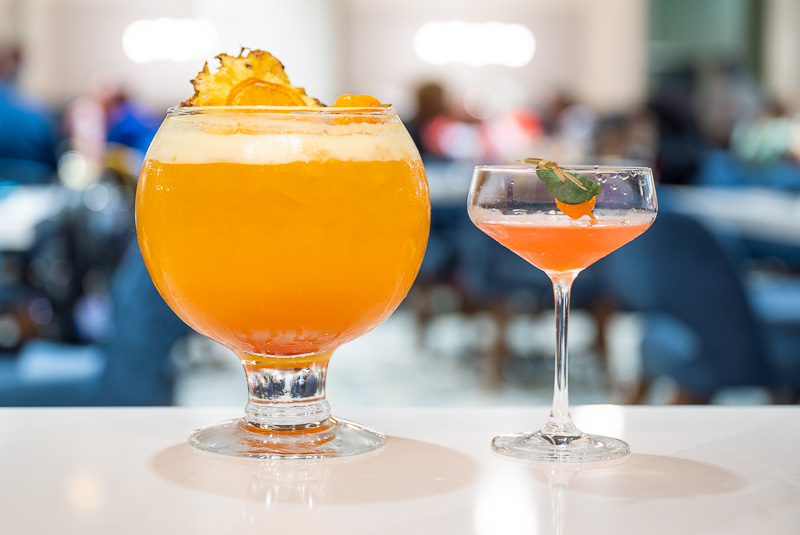

Dedicated Drinkers – The biggest change to the Disney Dining Plan pre-closure was the addition of alcoholic beverages, including beer, wine, and specialty cocktails at both table and counter service restaurants. The significance of this cannot be overstated, and it created winners and losers.
Unsurprisingly, this came with a price increase for adults on the Disney Dining Plan. More surprising was that the added cost was far below the average price of alcoholic beverages. This meant that anyone who ordered alcohol–especially wine or cocktails–at most meals came out ahead. Non-beer alcohol routinely runs $14 to $20 per drink at Walt Disney World, even at counter service restaurants. That’s a tremendous amount of value to guzzle down every day while using the Disney Dining Plan!
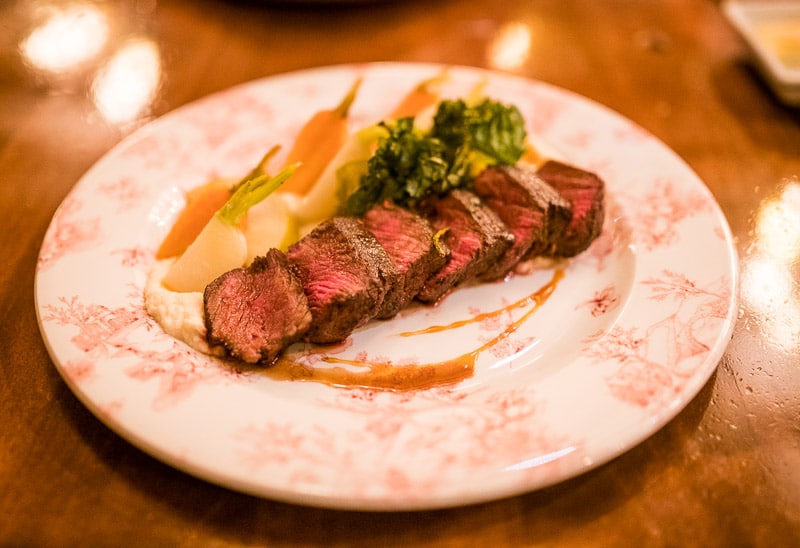

Consummate Carnivores – “Save with Steak” might as well be the motto of the Disney Dining Plan. Heck, they might as well change it from DDP to DCC–Disney Carnivore’s Club. This is all to say that if your family is full of meat-eaters who will naturally gravitate towards the most expensive items on the menu, the Disney Dining Plan can work out in your favor.
In the past, the most expensive entree at most single-credit table service restaurants (and almost 100% of the ones worth doing) was a New York Strip Steak. During the heyday of the Disney Dining Plan, there were some trips where I ate my weight in NY Strip Steak. Each restaurant had its own unique preparation and accompaniments, and it was fun to try them all. New York Strip Steak is still common but less ubiquitous, with other beef-based entrees sometimes being the most expensive (if you were paying out of pocket) entree option.
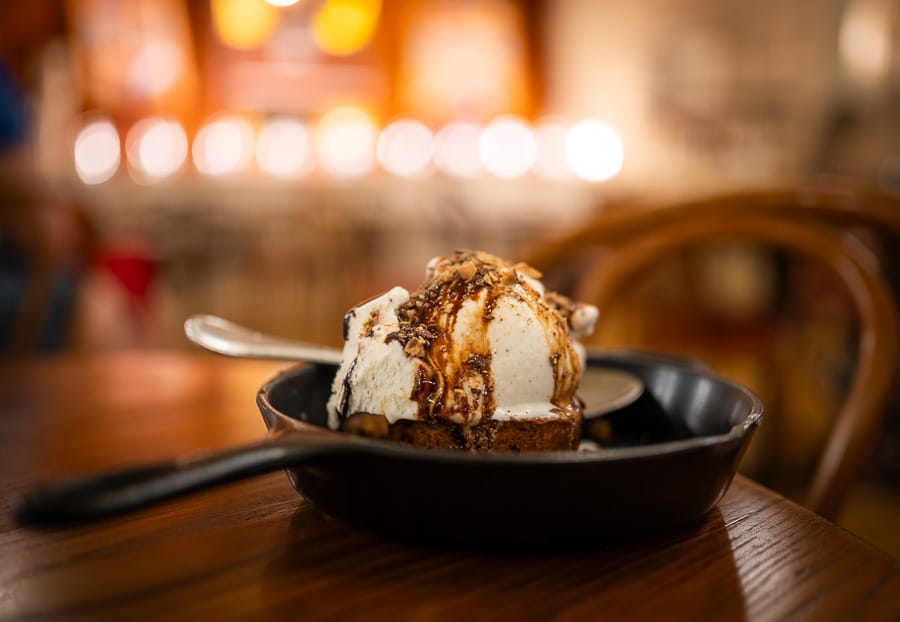

Insatiable Appetites – Historically, the Disney Dining Plan has provided more food than many guests would eat if ordering naturally and snacking only when hungry. A number of cutbacks over the years have changed this dynamic, and the removal of a snack on the 2024 Disney Dining Plan will further solve this “problem.” Nevertheless, those with big appetites are still rewarded by the Disney Dining Plan.
Suffice to say, if your kids are human garbage disposals and the adults in your party love steak, the Disney Dining Plan can offer some savings. As soon as anyone in your party starts ordering chicken or pasta, those savings disappear to the point that you might start losing money on the Disney Dining Plan. That’s when alcohol becomes “necessary” to bridge the gap.


Festival Fans – Disney Dining Plan snack credits are most valuable during EPCOT festival season…which is now most of the year. Some of the best snacks at the EPCOT festivals can cost as much as $10 and can be purchased using snack credits.
We highly recommend stockpiling snack credits and using them during your Epcot days, as not only are these festival snacks a great use of credits, but the EPCOT festivals are a ton of fun, too. This is yet another way to bridge the gap on value, as using snack credits on $8 to $10 items during EPCOT festivals is far more efficient than using them on a cheap coffee or bottle of water.
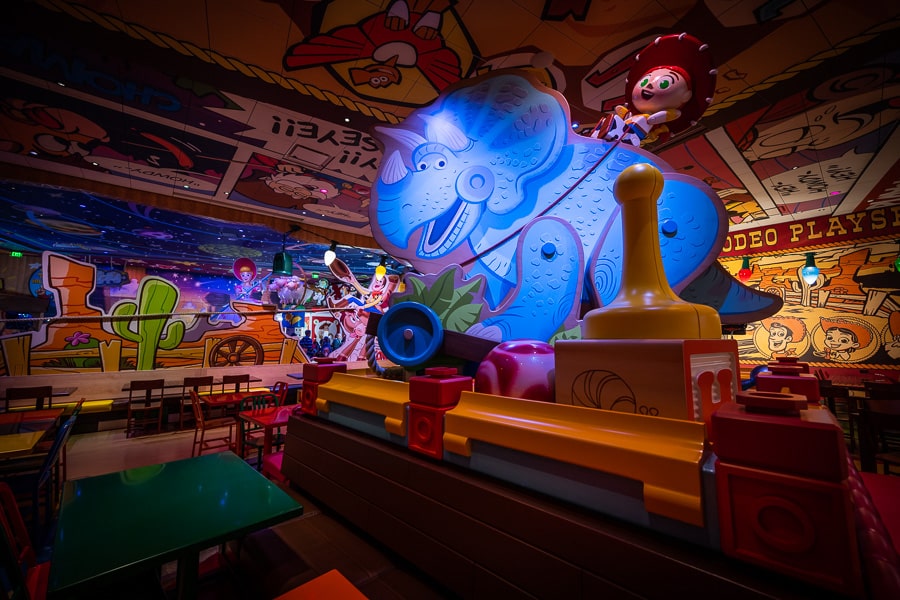

Split Stay Strategists – We are huge advocates of Split Stays at Walt Disney World, and this is far and away how we most frequently have used the Disney Dining Plan overselves over the years. For one thing, we think the DDP provides way too much food and can take too much time. There’s no way we could maintain the “pace” of the Disney Dining Plan for a full week or longer. No matter how well we planned, our “productivity” with the plan would drop by day 5.
Only doing the Disney Dining Plan for one portion of the trip allows us to do an attractions-oriented half of the trip, and a food-oriented half. We almost always do the food half of the trip second, when we’re ready to slow down, relax, and focus more on eating. This also allows you to maximize savings by booking ADRs for the best DDP restaurants during the second half of your trip, while focusing on your favorite ‘good value’ restaurants during the first half.
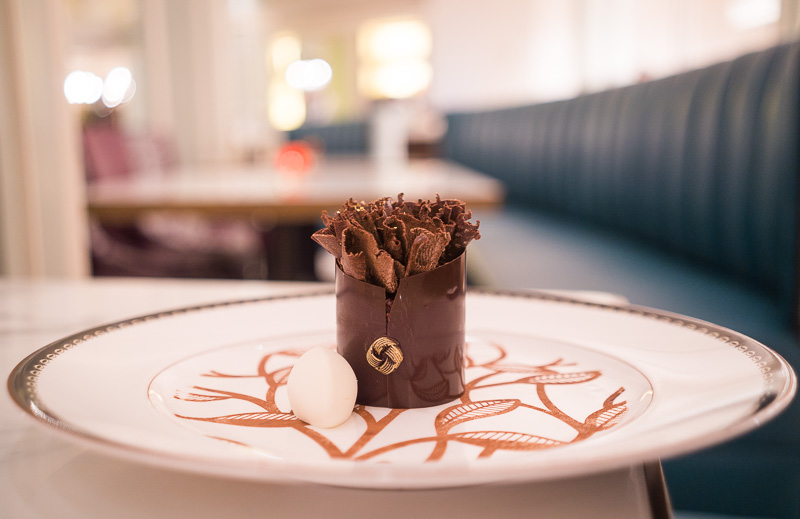

Why and Who Should SKIP the Disney Dining Plan!
Signature Status – Some dining experiences at Walt Disney World require 2 table service credits instead of just one. These are premium offerings, such as Signature Restaurants, Dinner Shows, Pizza Delivery, Room Service Meal, and a few character meals.
In terms of value for money (or credit), there is not a single 2-credit premium experience that’s worth it from an objective perspective on the regular Disney Dining Plan. None of them–not one–offers per-credit value that amounts to an above-average redemption of a single table service credit.
In order for these premium options to be worth it, they’d have to offer double the value of a worthwhile 1-credit restaurant. While most Signature Dining Experiences are considerably more expensive than their regular table service counterparts, they are not twice the cost. As such, you will almost certainly come out ahead by paying out of pocket if you’re doing a lot of Signature Restaurants. (In our view, Walt Disney World should add-back appetizers for the 2-credit restaurants to help bridge the gap.)
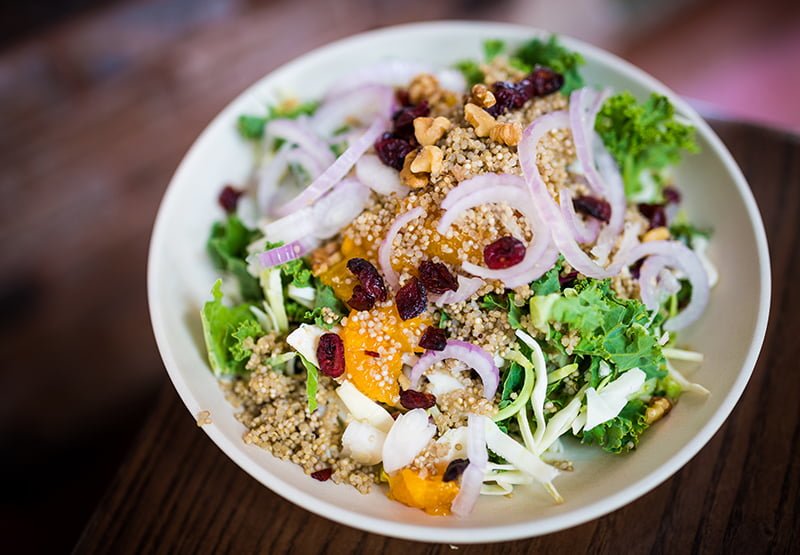

Vexed Vegetarian – There is literally no scenario in which it makes financial sense for a vegetarian or vegan to purchase the Disney Dining Plan. Plant-based items are almost always the cheapest options on the menu at Walt Disney World restaurants. Individual vegetarian adults will never come out ahead on the DDP unless they exclusively do character meals for whatever reason.
This is such a truism that we don’t feel the need to give examples or crunch the numbers. It is self-evident upon a cursory review of menus. This is unquestionably true if everyone in your party is vegetarian or vegan, and probably true even if only 25% of the adults in your party will only eat plant-based entrees.


Total Teetotalers – Globally, half of all adults do not drink alcohol at all and a little over one-third of American adults never imbibe. That’s a lot of people. The number is undoubtedly higher among Disney Dining Plan users, as anyone over the age of 9 is considered a “Disney Adult” and charged accordingly.
By contrast, only those who are 21 years of age and older are considered to be adults in the eyes of U.S. alcohol laws. Now, we’re big believers in the “Disney Bubble,” but Walt Disney World policy does not supercede the law. Those 10 year old “adults” cannot order a La Fin du Monde with lunch at Le Cellier. (Perhaps they can order a Labatt Blue Light, though…does that technically count as beer?)
The end result is that a lot of people are charged the adult price for the Disney Dining Plan who literally cannot drink, and many others are charged that rate who will not drink. These guests are effectively subsidizing the lower-priced alcohol on the DDP for drinkers.
Those who can’t or won’t drink alcohol do have the option of ordering specialty beverages such as milkshakes, smoothies, and mocktails (where available). However, the cost disparity is pretty significant. On average, non-drinkers are looking at getting around $15 less in value per day than drinkers. (The spread is even greater for non-drinkers who simply order soda or water.) That number is enough to be make-or-break on whether the DDP is “worth it” for many guests.
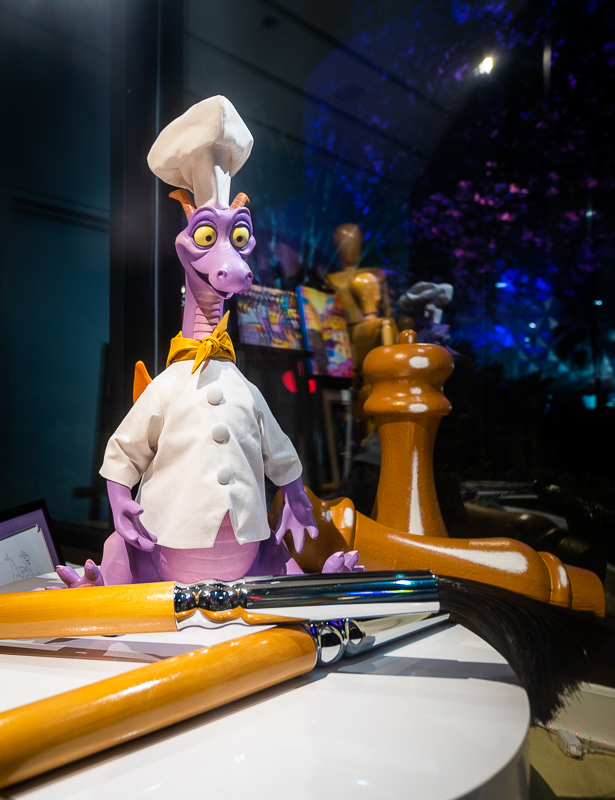

AP/DVC/CM – If you are eligible for an ‘affiliation’ discount as a result of being an Annual Passholder, Disney Vacation Club Member, or Cast Member (or Tables in Wonderland, if that ever returns), it’s going to be difficult to do better than that unless you overlap on the favored demos above.
In general, it’s also just easier to take 10-20% off everything at table service restaurants as opposed to having to figure out how to hack your meals to save money.
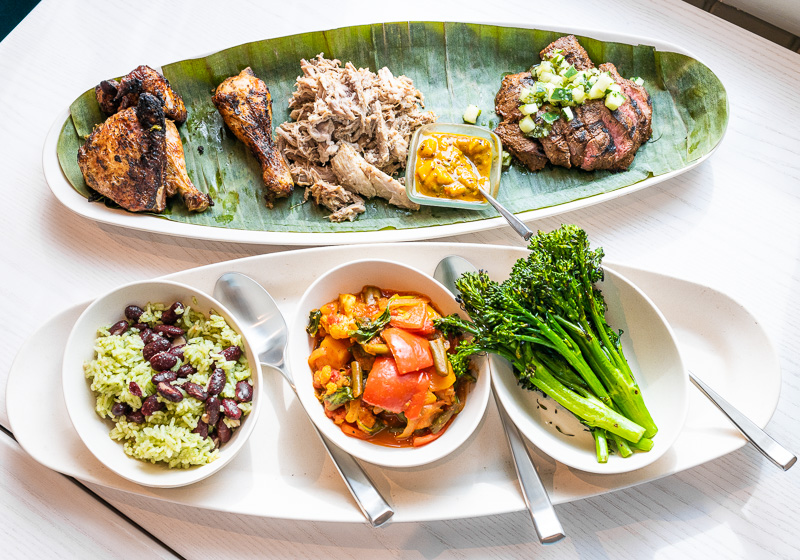

Doing Disney on a Dime – The Disney Dining Plan is not the cheapest way to eat at Walt Disney World. Not even close. At best, it’s a potential discount on a premium almost-inclusive meal package–it’s not the best bottom-dollar option for trying to do Disney on a Dime. (It’s like buying a BMW with a dealer incentive versus paying sticker price for a Kia. Yes, you “save money” on the former and not the latter, but the Kia still costs a heckuva lot less!)
Those who consult our Top 10 Best Value Table Service Restaurants at Walt Disney World will find that there are a lot of sit-down restaurants that are great options when paying out of pocket. Pair that with a cost-effective counter service meal and a snack, and your per-day meal cost could end up being less than half of what you’d pay for the Disney Dining Plan.
As discussed in our Tips for Buying Groceries at Walt Disney World post, you can cut costs further (without sacrificing vacation quality) by having breakfast in your room and packing snacks for the parks. The list of ways to reduce food costs at Walt Disney World goes on and on, but at no point is “buy the Disney Dining Plan” on it. It’s a luxury product that, like the BMW, can be discounted–but it’s never going to be as cheap as eating at Walt Disney World, Kia style.
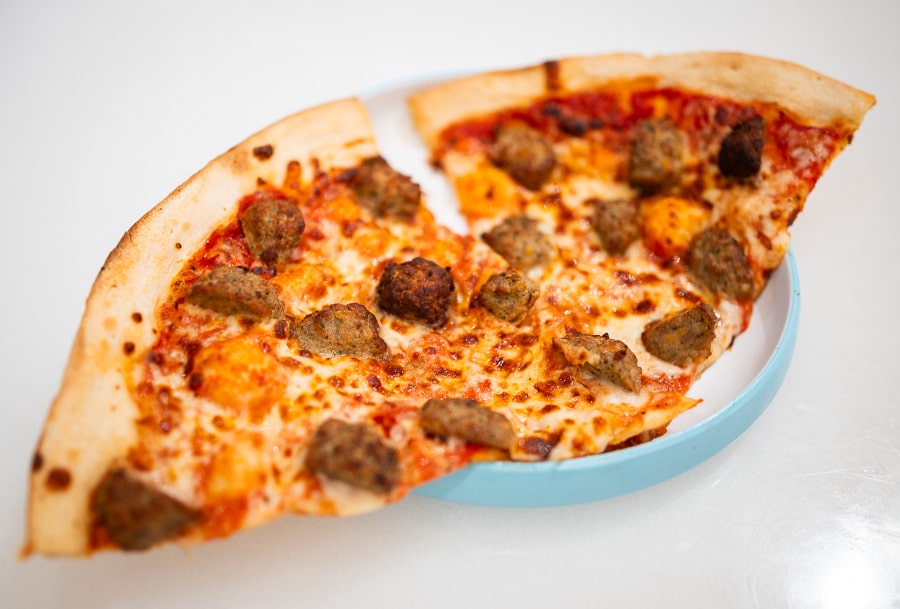

Go With the Flow…Folks – This is kind of an extension to the previous point as well as an “answer” to contentions that the Disney Dining Plan is convenient. If you want the best of both worlds, price out how much it would cost to add the Disney Dining Plan to your vacation, and purchase discounted Disney gift cards in that amount.
Use those gift cards to pay for all of your food, ordering whatever you want and doing your best to never look at menu prices. (Easier said than done, I know!) If you’re not one of the favored demos above, there’s a very strong chance you’ll have enough money leftover on the gift cards at the end of your vacation to pay for some nice souvenirs.
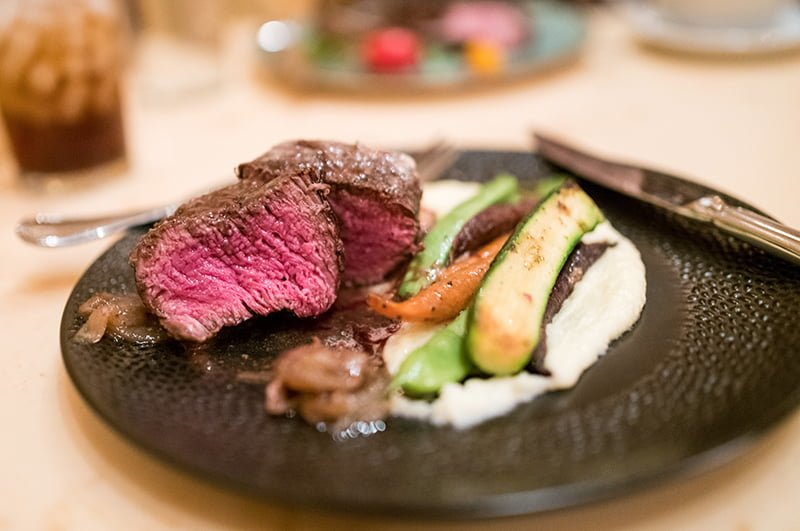

Ultimately, whether you should buy or skip the Disney Dining Plan is circumstantial. Although its many fans and many haters will try to tell you otherwise, the Disney Dining Plan is not universally good or bad. Think of it more like a tool, which can be useful or destructive depending upon the job. (Despite the similar names, a hammer and a jackhammer will produce radically different results on the same project!)
If your family is full of carnivores…the Disney Dining Plan might be for you. If you’re taking your twin boys to Walt Disney World to celebrate their 21st birthdays…the Disney Dining Plan might work out in your favor. If you’re a single parent of princess-loving triplets wanting to do as many character meals as possible…the Disney Dining Plan will definitely save you money.
By contrast, if your entire family is vegetarians, light eaters, or teetotalers…it’s unlikely that the Disney Dining Plan will work to your advantage. Even if you’re just average eaters, there’s a good chance that the Disney Dining Plan will end up costing you more money in the end. When it comes to the Disney Dining Plan, the house doesn’t always win, but it does come pretty close. That’s not to say you can’t come out ahead on the Disney Dining Plan, because you absolutely can. Heck, you can even save more than 20% if you play your cards right! But if you’re expecting to save money no matter how you use the DDP, you might want to think again.
Planning a Walt Disney World trip? Learn about hotels on our Walt Disney World Hotels Reviews page. For where to eat, read our Walt Disney World Restaurant Reviews. To save money on tickets or determine which type to buy, read our Tips for Saving Money on Walt Disney World Tickets post. Our What to Pack for Disney Trips post takes a unique look at clever items to take. For what to do and when to do it, our Walt Disney World Ride Guides will help. For comprehensive advice, the best place to start is our Walt Disney World Trip Planning Guide for everything you need to know!
YOUR THOUGHTS
What is your experience with the strengths and weaknesses of the Disney Dining Plan? Are you one of the favored or disfavored demos with the DDP? Thinking about buying the Disney Dining Plan? Wish other tiers were available, or options without alcohol or meat? Do you agree or disagree with our assessment? Any questions? Hearing your feedback–even when you disagree with us–is both interesting to us and helpful to other readers, so please share your thoughts below in the comments!

